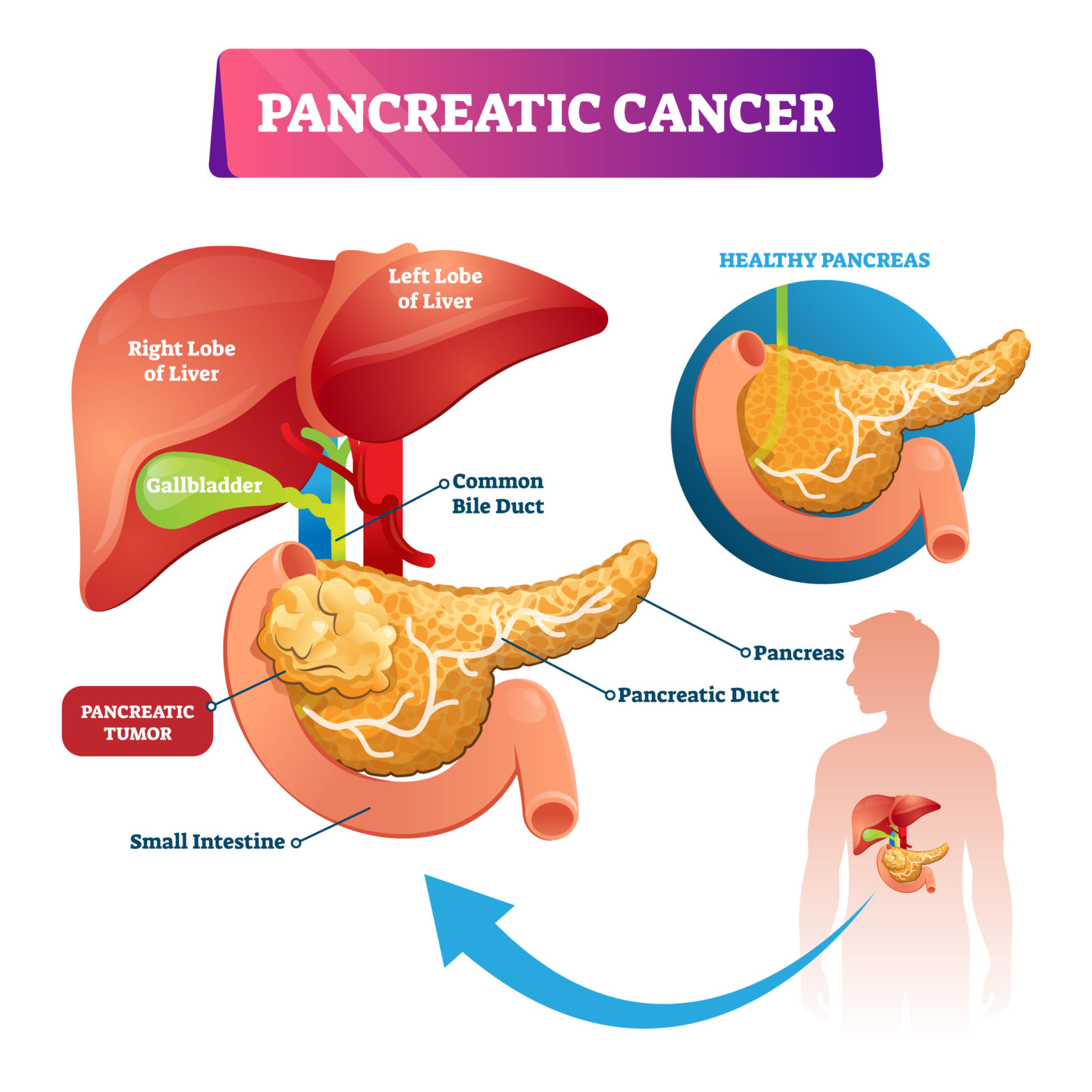Charles has become a beacon of hope for many in the fight against pancreatic cancer, one of the most aggressive forms of cancer known to medical science. His journey is a testament to the resilience of the human spirit and the importance of early detection and quality care. As pancreatic cancer continues to pose significant challenges in the medical field, understanding the condition and its implications is crucial for awareness and prevention.
Pancreatic cancer often goes undetected until it reaches advanced stages, making it one of the deadliest forms of cancer worldwide. Despite its severity, stories like Charles's inspire hope and action. By learning more about the symptoms, causes, and treatment options, we can empower ourselves and others to take proactive steps toward better health.
This article delves into Charles's experience with pancreatic cancer, providing comprehensive insights into the disease, its impact, and the latest advancements in treatment. Whether you're a patient, caregiver, or someone seeking knowledge, this guide will equip you with valuable information to navigate this challenging journey.
Read also:Debbie Depp The Untold Story Of A Hollywood Legacy
Table of Contents
- Biography of Charles
- Overview of Pancreatic Cancer
- Recognizing the Symptoms
- Diagnosis Methods
- Treatment Options
- Preventive Measures
- Challenges in Treatment
- Support Systems for Patients
- Ongoing Research and Innovations
- Conclusion and Call to Action
Biography of Charles
Early Life and Career
Charles, a renowned advocate for pancreatic cancer awareness, was born on March 15, 1972, in a small town in the Midwest. From an early age, he demonstrated a passion for helping others, which eventually led him to pursue a career in public health. His dedication to improving healthcare systems and advocating for patients' rights has earned him recognition both nationally and internationally.
Data and Biodata
| Full Name | Charles Anderson |
|---|---|
| Date of Birth | March 15, 1972 |
| Occupation | Public Health Advocate |
| Place of Birth | Springfield, Illinois |
Overview of Pancreatic Cancer
Pancreatic cancer refers to the uncontrolled growth of abnormal cells in the pancreas, an organ responsible for producing digestive enzymes and hormones like insulin. This type of cancer is notoriously difficult to detect early due to its lack of noticeable symptoms in the initial stages. According to the American Cancer Society, pancreatic cancer accounts for approximately 3% of all cancers in the United States but is responsible for about 7% of cancer deaths.
Recognizing the Symptoms
Identifying the symptoms of pancreatic cancer can be challenging, as they often mimic other less serious conditions. However, some common signs include:
- Jaundice (yellowing of the skin and eyes)
- Abdominal or back pain
- Unexplained weight loss
- Loss of appetite
- Fatigue
It is crucial to consult a healthcare professional if any of these symptoms persist, as early detection significantly improves treatment outcomes.
Diagnosis Methods
Diagnosing pancreatic cancer typically involves a combination of imaging tests, blood tests, and biopsies. Advanced imaging techniques such as CT scans, MRIs, and endoscopic ultrasounds play a vital role in detecting tumors within the pancreas. Additionally, blood tests like CA 19-9 can help monitor the progression of the disease.
Treatment Options
Surgical Interventions
Surgery remains one of the primary treatment options for pancreatic cancer, especially in cases where the tumor is localized. Procedures like the Whipple operation and distal pancreatectomy are commonly performed to remove cancerous tissue. However, the suitability of surgery depends on the stage and location of the tumor.
Read also:Aagmaalgives The Ultimate Guide To Unlocking Generosity And Making A Difference
Chemotherapy and Radiation Therapy
In cases where surgery is not feasible, chemotherapy and radiation therapy are employed to shrink tumors and alleviate symptoms. These treatments are often combined to enhance their effectiveness. Recent advancements in targeted therapies and immunotherapy have also shown promise in improving patient outcomes.
Preventive Measures
While there is no guaranteed way to prevent pancreatic cancer, certain lifestyle changes can reduce the risk. Maintaining a healthy weight, avoiding smoking, and consuming a balanced diet rich in fruits and vegetables are recommended. Regular medical check-ups, especially for individuals with a family history of the disease, can aid in early detection.
Challenges in Treatment
One of the primary challenges in treating pancreatic cancer is its resistance to conventional therapies. The complex nature of the disease and its ability to metastasize quickly make it difficult to manage effectively. Moreover, the lack of specific biomarkers for early detection further complicates the treatment process.
Support Systems for Patients
Support systems play a crucial role in helping patients and their families cope with the emotional and financial burdens of pancreatic cancer. Support groups, counseling services, and financial assistance programs are available to provide the necessary support. Charles actively participates in these initiatives, advocating for better resources and care for patients.
Ongoing Research and Innovations
Research into pancreatic cancer continues to make significant strides, with numerous clinical trials exploring new treatment options. Innovations in gene therapy, immunotherapy, and personalized medicine hold promise for more effective treatments in the future. Organizations like the Pancreatic Cancer Action Network (PanCAN) are at the forefront of funding and promoting such research.
Conclusion and Call to Action
Charles's journey with pancreatic cancer highlights the importance of awareness, early detection, and access to quality care. By understanding the symptoms, causes, and treatment options, we can work together to combat this formidable disease. We encourage readers to share this article, support pancreatic cancer research, and participate in awareness campaigns. Together, we can make a difference in the fight against pancreatic cancer.
For more information, visit reputable sources such as the American Cancer Society, PanCAN, and the National Cancer Institute. Your contributions, whether through donations or volunteering, can help advance research and improve patient outcomes.


